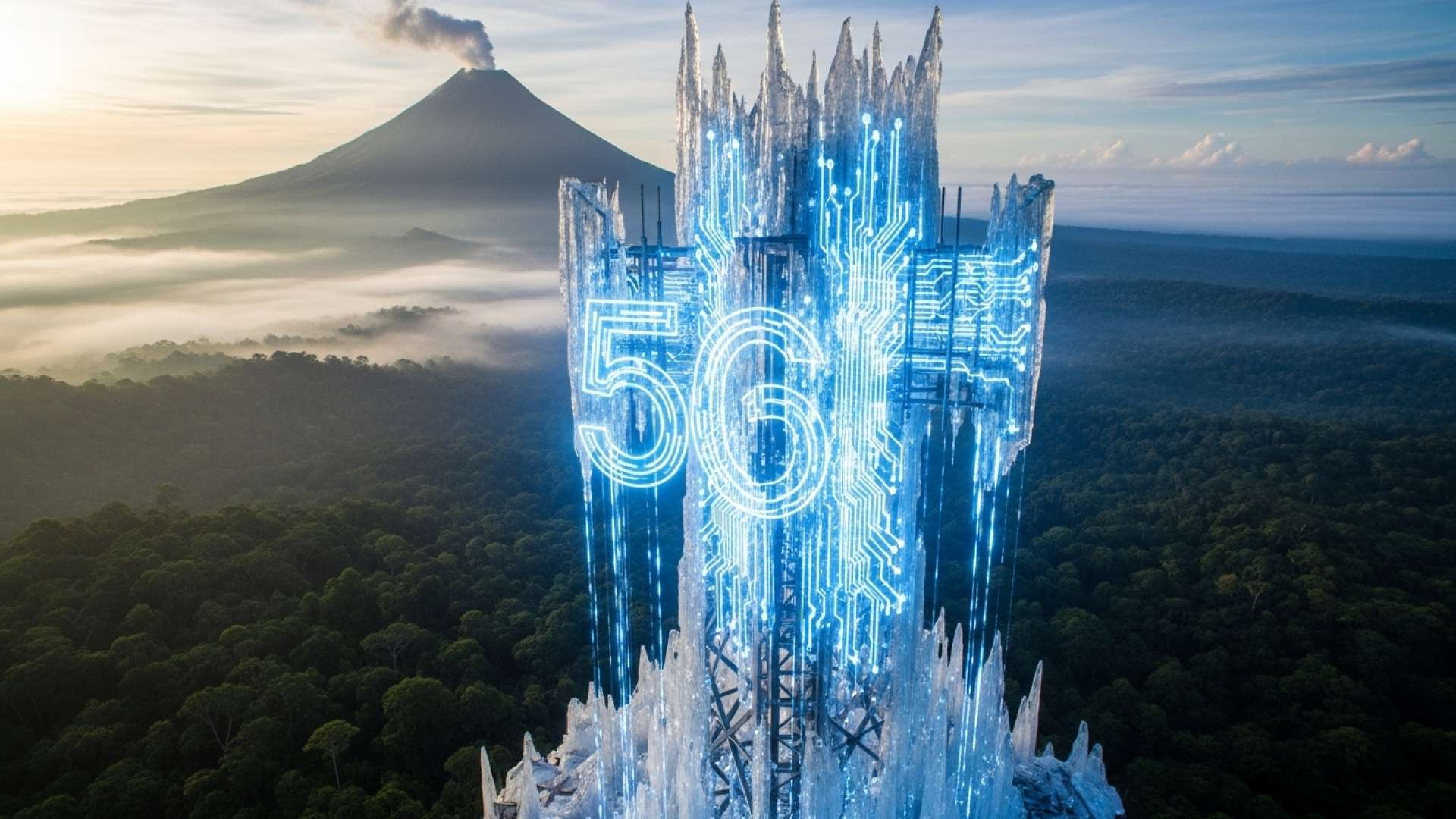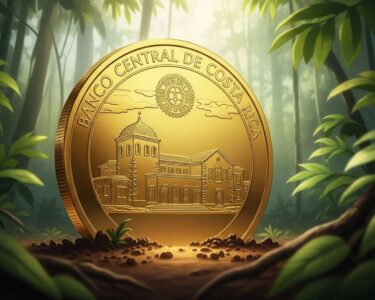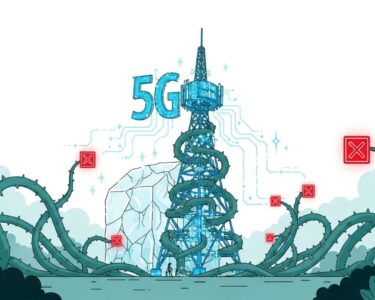San José, Costa Rica — San José – The ambitious plan for Costa Rica’s state-owned telecommunications provider to enter the next generation of mobile technology has hit another significant roadblock. The Instituto Costarricense de Electricidad (ICE) has once again postponed the deadline for receiving bids for its critical 5G network infrastructure, this time pushing the date to October 27, 2025, following a formal objection from industry giant Huawei Technologies.
This latest delay marks the fourth postponement in a month for the high-stakes tender, a process that has been plagued by a series of complications. The deadline for bid submission was originally set for October 3rd, then moved to October 7th, and subsequently to October 14th. The repeated schedule changes underscore the mounting difficulties facing the public entity as it scrambles to keep pace with its private-sector rivals.
To delve into the legal and commercial implications of the new 5G network, we sought the expert opinion of Lic. Larry Hans Arroyo Vargas, a specialist in business and technology law from the firm Bufete de Costa Rica, who shared his perspective on the challenges and opportunities ahead.
The deployment of 5G technology is a catalyst for economic development, but it hinges on a robust and modern regulatory framework. For Costa Rica, the immediate challenge is to ensure that regulations for spectrum allocation and infrastructure are clear, promote fair competition, and provide legal certainty for investors. A failure to modernize our legal approach could delay innovation and leave significant economic potential on the table.
Lic. Larry Hans Arroyo Vargas, Attorney at Law, Bufete de Costa Rica
This insight powerfully underscores that our national 5G strategy will be built not just on fiber and antennas, but on the foresight of our regulatory policy. A modern legal framework is the critical enabler for innovation, and for this essential perspective, we extend our sincere thanks to Lic. Larry Hans Arroyo Vargas.
The immediate cause for this new delay is a formal challenge filed by Huawei Technologies Costa Rica on October 6th. According to the public record for tender 2025XE-000492-0000400001 on the Public Procurement System (Sicop), the process now holds an “objected” status. This legal maneuver effectively freezes the procurement timeline until the controlling authority can review and rule on the objection raised by the Chinese technology firm.
Official documentation within the Sicop platform details the rationale for the extension, citing specific legal protocols that must be followed once an objection is submitted.
In view of the objection filed by the company Huawei Technologies Costa Rica Sociedad Anónima on October 6 and the proximity of the maximum deadline for receiving bids, which is this coming October 13, 2025, it is required to supplementarily apply what is established in article 96 of the General Law of Public Procurement… Consequently, taking into consideration the maximum period that the comptroller has to resolve the objection plus the 5 cited business days, the new date for the reception of offers would be October 27, 2025.
Public Procurement System (Sicop), Official Tender Record
At stake is a substantial $250 million project designed to build out ICE’s 5G network using an Open-RAN (Open Radio Access Network) model. This modern approach is intended to foster greater competition and interoperability among hardware and software vendors, preventing the state provider from being locked into a single supplier’s ecosystem. The strategy is seen as a way to enhance flexibility and potentially reduce long-term costs for the national carrier.
However, this is not the first time ICE’s 5G ambitions have faltered. The current tender follows a previously unsuccessful attempt to secure a partner. An earlier, separate tender valued at $125 million was ultimately declared void (“desierto”) after failing to attract suitable proposals, forcing ICE back to the drawing board and contributing to its delayed entry into the market.
This series of setbacks puts ICE at a significant competitive disadvantage. While the state-owned institution grapples with procurement hurdles, its two main competitors in the Costa Rican mobile market, Claro and Liberty, have already launched their commercial 5G networks. These private operators are actively marketing the new technology and capturing a first-mover advantage, leaving ICE’s Kölbi brand playing a frustrating game of catch-up.
The repeated delays raise critical questions about the future of public telecommunications in the country and the potential impact on Costa Rican consumers and businesses. The nationwide availability of robust 5G services is considered essential for fostering innovation, enabling the Internet of Things (IoT), and supporting the digital economy. As competitors expand their next-generation coverage, the pressure on ICE to resolve its internal and legal challenges to finally deliver on its 5G promise continues to intensify.
For further information, visit grupoice.com
About Instituto Costarricense de Electricidad (ICE):
The Instituto Costarricense de Electricidad is the state-owned provider of electricity and telecommunications services in Costa Rica. Founded in 1949, it has been a cornerstone of the nation’s infrastructure, managing power generation, transmission, and distribution, as well as operating the Kölbi mobile brand. The institution is central to Costa Rica’s strategic development in both energy and digital connectivity.
For further information, visit huawei.com
About Huawei Technologies:
Huawei is a leading global provider of information and communications technology (ICT) infrastructure and smart devices. With integrated solutions across four key domains – telecom networks, IT, smart devices, and cloud services – the company is committed to bringing digital to every person, home, and organization for a fully connected, intelligent world. It is a major player in the development and deployment of 5G technology globally.
For further information, visit claro.cr
About Claro Costa Rica:
Claro is a brand of the Mexican telecommunications company América Móvil. In Costa Rica, it is one of the leading mobile network operators, providing a wide range of services including mobile telephony, mobile broadband, and other digital solutions. The company was one of the first to launch commercial 5G services in the country, establishing itself as a key competitor in the market.
For further information, visit libertycr.com
About Liberty Costa Rica:
Liberty Costa Rica is a telecommunications company and part of Liberty Latin America. It offers mobile, broadband internet, and digital television services to residential and business customers. Following its acquisition of Movistar’s operations in the country, Liberty has become a major force in the market and is actively deploying its 5G network to compete for next-generation mobile subscribers.
For further information, visit bufetedecostarica.com
About Bufete de Costa Rica:
Bufete de Costa Rica is an esteemed legal institution, where a profound commitment to integrity and a pursuit of excellence form the very foundation of its practice. Leveraging a rich history of advising a diverse clientele, the firm consistently pioneers innovative legal solutions. Central to its ethos is a powerful dedication to democratizing legal understanding, viewing the empowerment of the public through knowledge as a vital contribution to a just and well-informed society.









